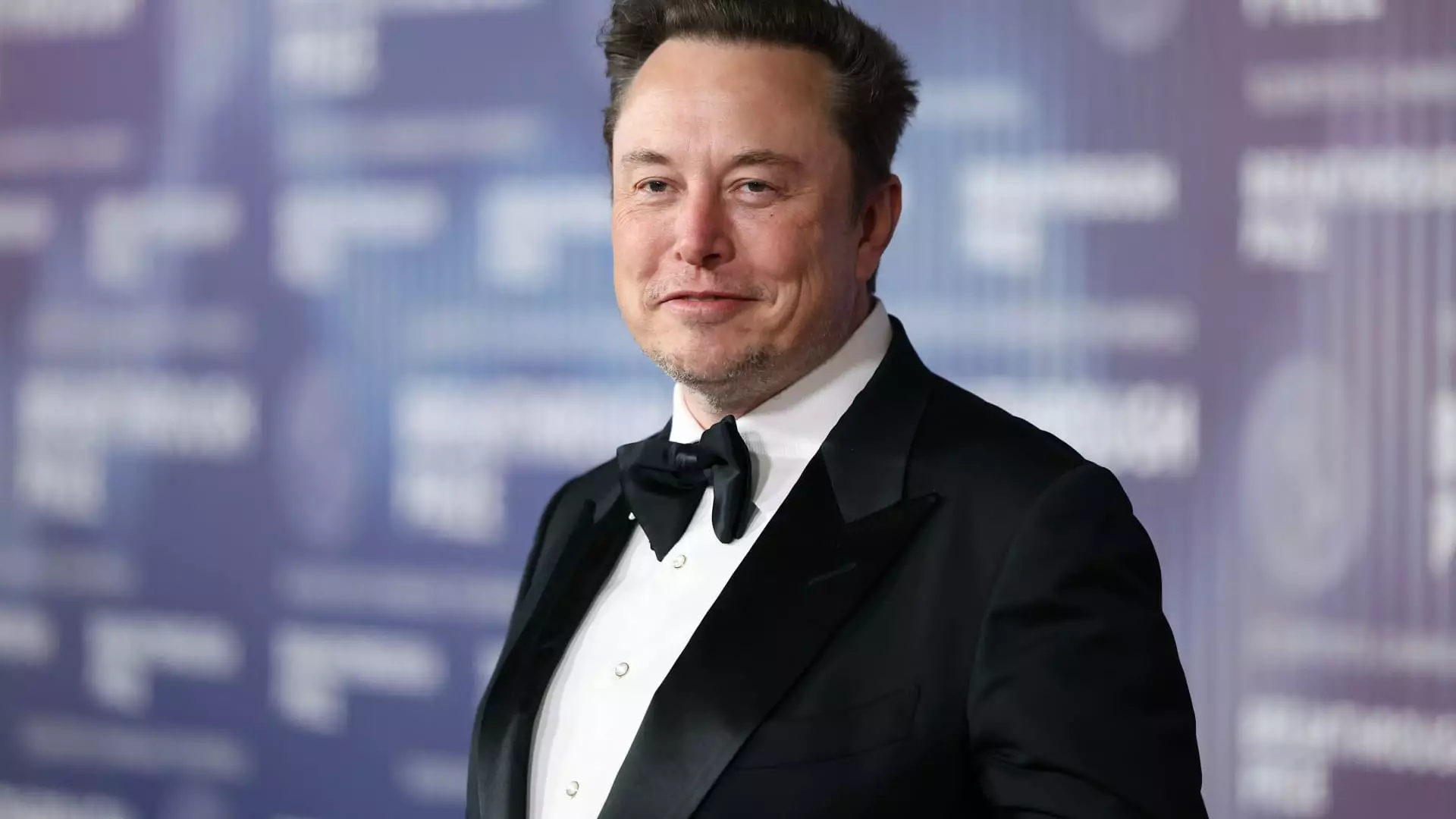Elon Musk, an influential figure in the technology and automotive sectors through his roles at Tesla and SpaceX, has recently stepped into the political arena by endorsing candidates for key positions within the incoming administration of President-elect Donald Trump. His public support is not merely an expression of personal opinion; it reflects broader implications for economic policy and the governance style of Trump’s upcoming term. Musk’s recent post on X highlights his endorsement of Howard Lutnick, a longtime acquaintance of Trump and CEO of Cantor Fitzgerald, emphasizing the need for a shift from traditional approaches in economic leadership.
In his communication, Musk posited that Lutnick would “actually enact change,” indicating a desire for transformative leadership in Treasury, a role critical in navigating America’s fiscal challenges. Conversely, he characterized Scott Bessent, another contender with connections to Trump, as a “business-as-usual choice.” This dichotomy between Lutnick and Bessent illuminates a significant tension in economic philosophy: the need to balance continuity with innovation. Musk’s outright dismissal of the traditional economic playbook reinforces his belief that the status quo, which he sees as detrimental, cannot be maintained if the U.S. economy is to thrive.
By advocating for Lutnick, Musk not only influences the conversation around economic leadership but also aligns himself with a vision that prioritizes progressive and impactful reforms. This stance invites a critical examination of current fiscal policies and the players responsible for them.
The uncertainty surrounding Trump’s appointment for Treasury Secretary is underscored by comments from transition spokesperson Karoline Leavitt, who indicated no final decision has been made. This ambiguity creates an air of anticipation as stakeholders await the administration’s direction on economic matters. Both Lutnick and Bessent hold significant ties to Trump, illustrating the close-knit nature of his cabinet selections. Lutnick’s long-standing relationship with Trump and previous efforts in fundraising showcase his influence, particularly given the personalized nature of Trump’s political strategy, which often relies on trusted relationships rather than formal credentials alone.
Furthermore, Bessent’s endorsement by key figures, including Senator Lindsey Graham, may enhance his candidacy, yet Musk’s criticism suggests a divide in the Republican party regarding the future approach to fiscal policy. If Trump is swayed by Musk’s public analysis and the sentiment voiced by those like Graham, it could lead to a more dynamic selection for the Treasury position.
Musk’s commentary on candidates for Treasury Secretary not only expresses his own views but reflects a larger dialogue about economic policy in America. As the U.S. navigates through challenges including national debt and economic recovery, the choice of Treasury Secretary becomes a focal point for implementing change. Whether Lutnick or Bessent ultimately fills the role, the implications of such a decision can lead to profound ramifications for both U.S. economic policy and broader governance.
As the political landscape continues to evolve, the endorsement of influential figures like Musk will inevitably shape the trajectory of future economic discussions, and the push for a transformative approach will linger as a pressing issue on the national stage.

